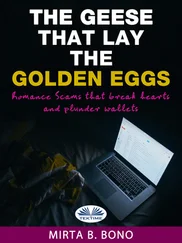* * *
The next morning, Brunetti made a special point of arriving at the Questura on time, not that anyone paid any particular attention to when he got there. He had called the hospital from home just after eight and spoken to the nurse in charge of Ana Cavanella’s ward. The signora had passed a quiet night; the doctor who examined her had decided to keep her one more day and night before sending her home. The nurse did not know if she had had any visitors, only that another woman had been moved into her room.
Signorina Elettra was in her office, standing at the cabinet beside the door, slipping a file back into place. Seeing her wearing cashmere – a rusty orange cardigan – after the long pause of the summer, Brunetti had confirmation that autumn had arrived.
‘Ah, Commissario, come and I shall tell you mysterious things.’
He followed her back to her desk. Instead of turning on her computer, she pulled out the small chiavetta protruding from the side. ‘Shall we use your computer, Signore?’ she asked. A quick glance showed him that Patta’s door was open, suggesting that he had not yet arrived. Yes, better that Patta’s day should not begin with the sight of him in confabulation with Signorina Elettra and her computer.
Upstairs, he left it to her to insert the chiavetta and turn on the computer while he hung his raincoat and scarf in the cupboard. ‘Please,’ he called over to her; she sat in his chair and ran an affectionate hand over the keys of the computer she had procured for him a year ago. He did not want to know what she had done in order to achieve that, nor how many police offices in Bari were without basic equipment because he had this top-of-the-line computer that was the envy of the younger staff and a source of witless pride to himself. To have somehow had the Ministry of the Interior buy him a Maserati would have been no greater example of conspicuous, and wasted, consumption.
From her smile, it was evident how much she appreciated the machine she was using, which caused him, not for the first time, to wonder why she had had it consigned to him and not to herself. He walked to the desk and pulled one of the guest’s chairs around behind it.
‘Look,’ she said, pointing to the screen. He recognized the double-faced document he saw before him: front and back cover and then the inside pages of a carta d’identità , issued six years before by the Comune di Venezia. The woman’s age was given as 53, birthplace Venice, and residence the address in San Polo. Her civil status was ‘ nubile ’, not ‘ sposata ’, and her profession ‘ casalinga ’, a housewife or woman who kept house. She received the minimum state pension.
Signorina Elettra hit a key, and the identity card was replaced by a report from Ulss that gave the woman’s name and the same address, and the name of the doctor who had her under his care. His address was in San Polo, as well.
Another key, and Brunetti saw the list of and reasons for her medical visits as well as the diagnoses and prescriptions that resulted from them, at least for the last seventeen years, since the records began to be computerized. Running his eye down them, he saw that she was another of those people who would, as was said of his mother for most of her life, put the doctors out of business. She had visited the doctor six times in the last twelve years, twice for influenza, once for a bladder infection, and twice to get a referral for her Pap test. A year ago, she had received a prescription for a common sleeping pill.
‘And the son?’ Brunetti asked.
She shook her head. ‘Nothing. He doesn’t exist. He wasn’t born, didn’t go to school, never saw a doctor or went to the hospital.’ She glanced up at him and said, ‘It’s the same thing Pucetti found. Or didn’t find.’
She typed in ‘Davide Cavanella’, and the screen showed the name on a document and, across from it, rows of XXXXXXXXXs in place of information. He was never arrested, or issued a hunting or a driver’s licence, had no passport, no carta d’identitá , never worked for the state or paid into a pension. Nor did he receive a disability allowance. Then, as an afterthought or to show that she had checked every possible category, Signorina Elettra went back to the previous screen and tapped at the listing: ‘No carer’s allowance for the mother.’
In a country filled with fake blind people, with others collecting the pensions of relatives who had died a decade before, of people declared to be 100 per cent incapacitated who played golf and tennis, here was a genuinely disabled person who had never made any claim on the state.
‘Nothing?’ he asked, certain that she had looked in other places and not bothered to tell him.
‘Nothing. For all the official evidence there is, he does not exist and never has.’
For some time, they sat quietly, looking at the screen. She pushed another key, and it went blank, as if in illustration of Davide Cavanella’s life: Brunetti considered the gesture melodramatic, but he kept this opinion to himself.
‘And Lucrezia Lembo?’ he asked for want of any other possibility.
Signora Elettra’s hands returned to the keyboard, and she brought up the files and highlighted one of them. She opened it to show another carta d’identità with a black and white photo of a woman of a certain age looking severely at the camera, as if suspicious of its intentions. Her eyes were light, which suggested that her dark colouring was the result of sun rather than nature, and she appeared to be wearing little or no makeup, so it was impossible
to disguise those wary eyes and a tightly closed mouth. He looked at the inner pages, where he read her date of birth: two years before Ana Cavanella, her parents resident in Dorsoduro. Her height was given as 1.74 metres, her civil state as ‘sposata’, her hair ‘bionda’ , her current profession ‘Direttrice’, which, without an indication of what it was she was the director of, could mean just about anything.
‘What else?’ he asked.
Silently, she showed him Lucrezia Lembo’s health records for the last fifteen years, which made heavy reading. She had developed diabetes in her fifties, yet apparently kept it under control with pills; she had been hospitalized twice with pneumonia, and according to her doctor’s notes, continued to smoke heavily, which the same doctor noted as a factor exacerbating not only the pneumonia, but the diabetes. There was little evidence that she had yearly tests of any sort: she had apparently never had a PAP test or a mammogram, though her doctor’s notes were filled with recommendations that she do so.
She took Avandia for her diabetes, Tavor for anxiety, Zoloft for depression, and in the past had been given Antabuse, a drug he knew was given to alcoholics that made them violently ill if they consumed any alcohol. That prescription had been filled once six years ago, then four years ago, but not since then. Brunetti cast his eye down a long list of the medicines which had been prescribed to her with some regularity and noticed a number of common antibiotics; the others were unfamiliar to him.
She had a passport and over the years had always kept it renewed. There was no indication of where she went with it.
Three years before, she had started to receive a state pension, having worked for twenty-seven years as the Director of Products of Lembo Minerals.
‘What does Lembo Minerals do?’ he asked.
‘They extract ore – chiefly copper – from mines all over the world and ship it to factories in other countries.’
‘That’s all?’
‘In essence, yes,’ Signorina Elettra said. ‘At least, from the public information available.’
Читать дальше












